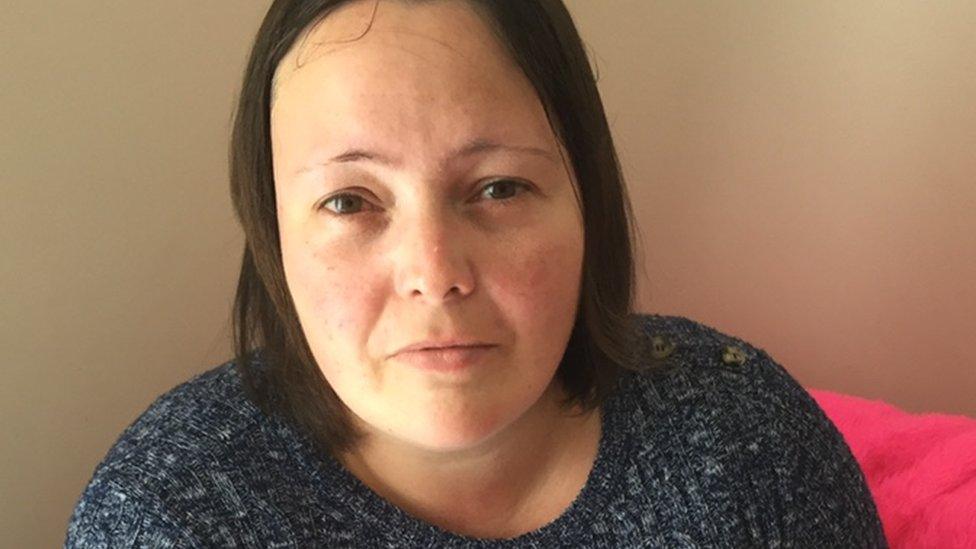Covid-19: SEND families' struggles amplified in lockdown
- Published
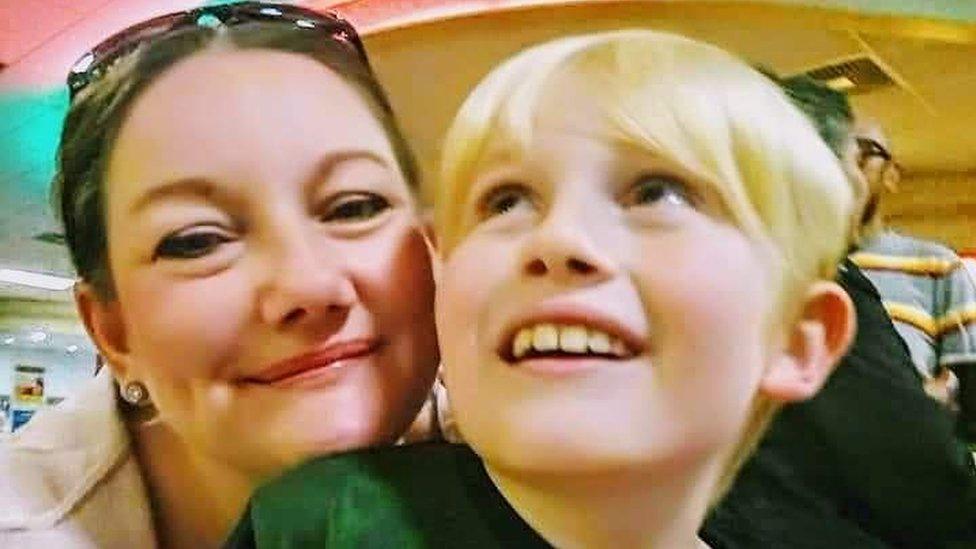
Jennifer Holt says her son was refused a school place despite being recognised as having special needs
Parents of children with special educational needs and disabilities (SEND) say they feel "abandoned and let down" over lockdown provision.
Some are waiting to see if their child can still attend school, while others have been "point blank refused".
The SEND Action group said: "As in the last lockdown many are being turned away because they are not regarded as vulnerable enough."
The government said it was prioritising children with special needs.
It announced a third lockdown on Monday, with schools being closed except for children deemed "vulnerable", external.
This term does not only mean children in care but also those with special educational needs and who have an EHCP (Education, Health and Care Plan).
Mother of two Jen Smith, from Bristol, spent two years in a legal battle to get an EHCP in place, as well as an education provision at a specialist school in South Gloucestershire.
"It's a worrying time," she said.
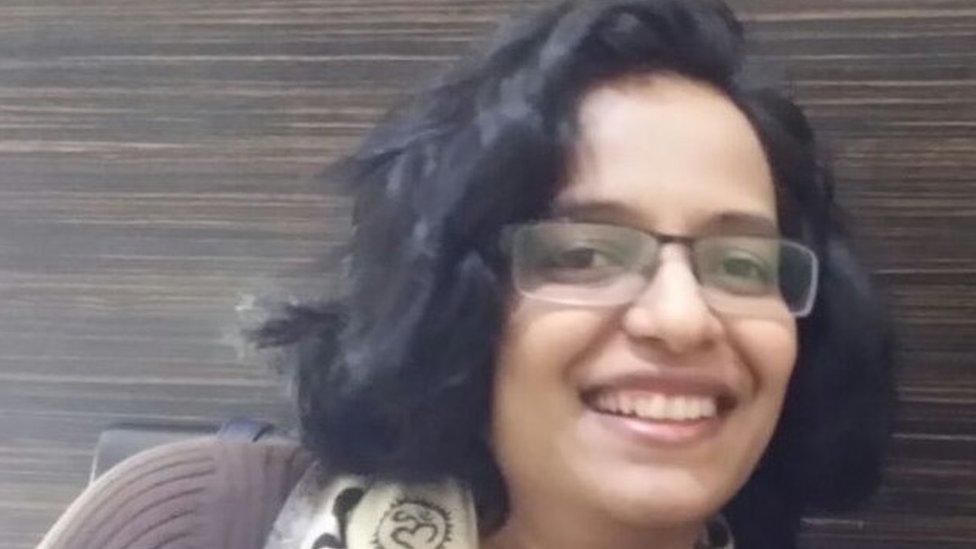
Ramya from Swindon said her autistic son is having extra medication for anxiety due to lockdown
"I have a child with an EHCP who already missed most of year seven and eight and it's taking the first term of year nine to get him settled into a new school that could meet his needs.
"Now that we've just gone into lockdown there's no guarantee that he'll get a place."
She said she was waiting to hear back from her son's school and things were "up in the air".
"We live in an overcrowded flat and we don't have the space to really properly do home learning."
She also felt that nationally, the system for SEND was "a mess".
"We have head teachers who are pitted against the government and then parents pitted against the schools and head teachers.
"It feels like a constant ongoing fight."
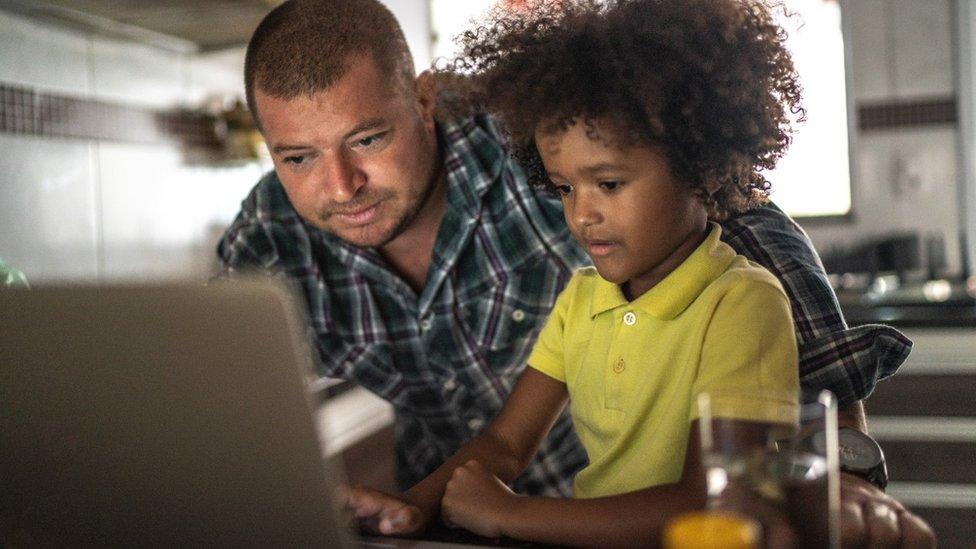
The government says schools in England will close until at least February half-term
For other parents, lockdown has meant more struggles alongside a long-running "battle" to secure an EHCP.
Those parents have a My Support Plan in place for their child, which is a level below the EHCP.
It means the school recognises the child has additional needs but unlike the EHCP, there is no ring-fenced funding in place.
Special needs teacher Jennifer Holt, from Huddersfield, says her 10-year-old son is waiting to get a EHCP and is awaiting an autism diagnosis by independent specialists.
He has been already diagnosed with severe dyslexia and dyspraxia.
She said: "Not being able to attend for another, probably minimum two months, it's going to make him step back.
"He is so difficult to get engaged in any formal learning, which the school know about.
"He won't get any formal education at all, he won't engage any written work at home, he won't contribute to any Zoom meetings. He shuts down."
She said his school class size was small so social distancing measures were achievable.
"It's so soul-destroying how much you have to fight for this brilliant little person that you've got, that you know how brilliant they are and other people fail to, or don't want to recognise or support them.
"The feeling of rejection I had was heartbreaking."
A spokesman for Kirklees Council said: "Like all local authorities, we are supporting schools to continue to provide the best possible standards of safety, care and education at an incredibly difficult time for schools and families.
"If this particular family would like to contact us, we would be keen to discuss their circumstances."
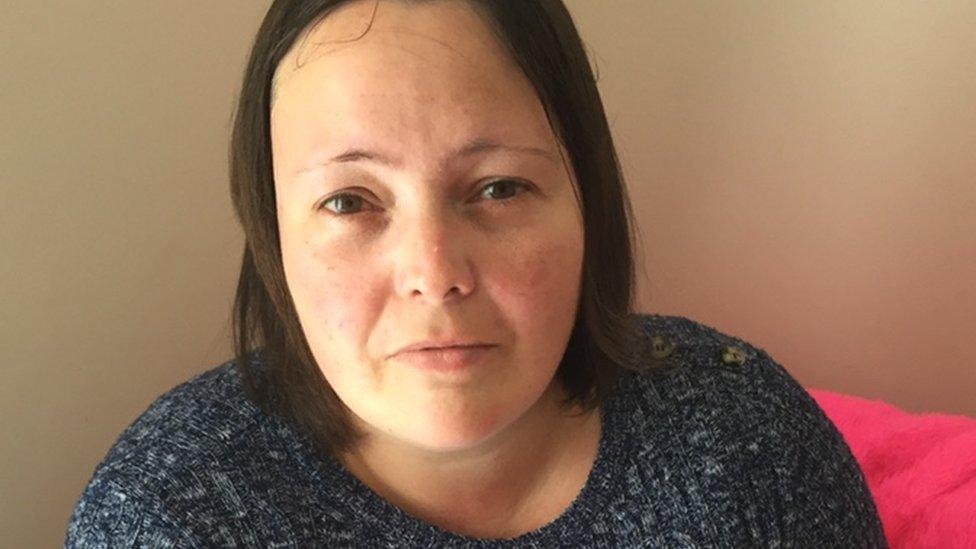
Jen Smith says the whole system for SEND education is "a mess"
While some parents remain in limbo, for others the decision to remain at home has been based on medical grounds.
Rumya Kumar, from Swindon, has decided to keep her 13-year old son, who has autism, at home as she has lupus, external.
She kept him home during the national lockdown last March, but his condition deteriorated as a result.
"He is quite happy not to go out, to stay at home with no school.
"But the problem is the more he stays at home, which is his comfort zone, then the harder it gets to send him to school."
She added that it took him the whole of the winter term to readjust to school.
Due to the uncertainty of the pandemic, she said the doctors had to increase his anxiety medication to help him cope.
Ms Kumar also hopes to be vaccinated soon so her son can return on a part-time basis.

A SIMPLE GUIDE: How do I protect myself?
AVOIDING CONTACT: The rules on self-isolation and exercise
HOPE AND LOSS: Your coronavirus stories
LOOK-UP TOOL: Check cases in your area

Alice Marshment faced a tense wait for just over a day to see if Bristol City Council would reinstate school transport for her son.
It had been temporarily pulled but the council has since confirmed transport would be in place for the the twice-daily two-hour round trip.
She said she would have been unable to drive him there, as she also had to home-school her son.
"It feels as though the SEND children, the Cinderella siblings with the education system, have just been forgotten about again," she said.
"To be fair, the government hasn't been on top of anything to do with education in this pandemic.
"If we feel that the children generally have been at the bottom of the ladder in terms of the government's concern then SEND children aren't even on the ladder."
She added that SEND children needed to be prioritised.
"All schools, special schools included, have to find a way to make it work for those children who want to be at school... the government and the local authorities need to work together to make sure that that can happen," said Ms Marshment.
"We have very little reserve left to get us through.
"We need this support, it's not an optional extra."
A SEND action group spokeswoman said: "In order to close the gap between rhetoric and reality, DfE and the government need to engage with special schools and families of disabled children regarding the particular challenges these schools face and the support required to address them."
A Department for Education spokesperson said: "We have prioritised vulnerable children and children with special educational needs and disabilities throughout the pandemic."
They said they were addressing issues "urgently", that "alternative provision schools remain open" and that the government would "publish guidance in due course".
- Published23 February 2022

- Published15 January 2020
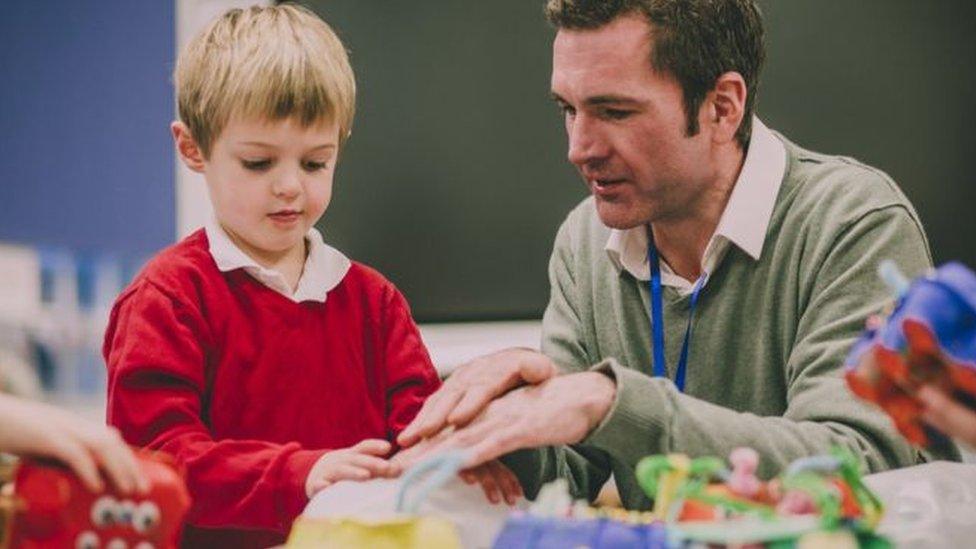
- Published20 December 2019
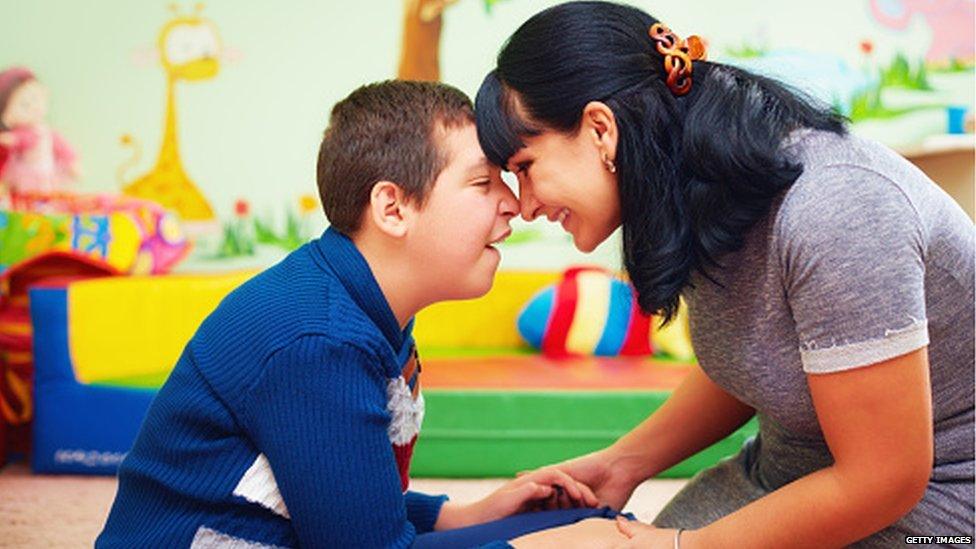
- Published5 July 2019
